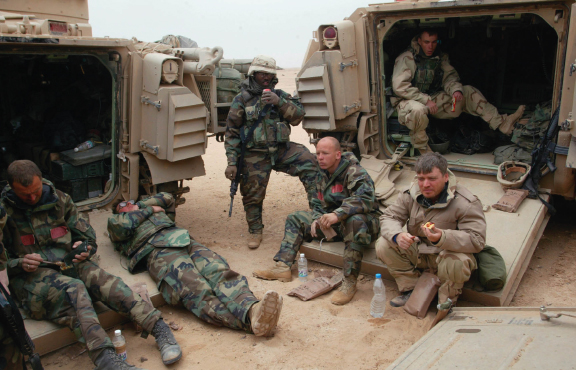The Origins of Free Expression and a Free Press

During the Iraq war, journalists were embedded with troops to provide “frontline” coverage. The freedom the U.S. press had to report on the war came at a cost. According to the Committee to Protect Journalists, 225 journalists and media workers were killed in Iraq between 2003 and 2011 as a result of hostile actions.
When students from other cultures attend school in the United States, many are astounded by the number of books, news articles, editorials, cartoons, films, TV shows, and Web sites that make fun of U.S. presidents, the military, and the police. Many countries’ governments throughout history have jailed, even killed, their citizens for such speech “violations.” For instance, between 1992 and July 2012, more than 900 international journalists were killed in the line of duty, often because someone disagreed with what they wrote or reported.5 In the United States, however, we have generally taken for granted our right to criticize and poke fun at the government and other authority figures. Moreover, many of us are unaware of the ideas that underpin our freedoms and don’t realize the extent to which those freedoms surpass those in most other countries.
In fact, a 2013 survey related that sixty-four nations allow virtually no freedom of the press, with those governments exercising tight control over the news media and even intimidating, jailing, and executing journalists.6